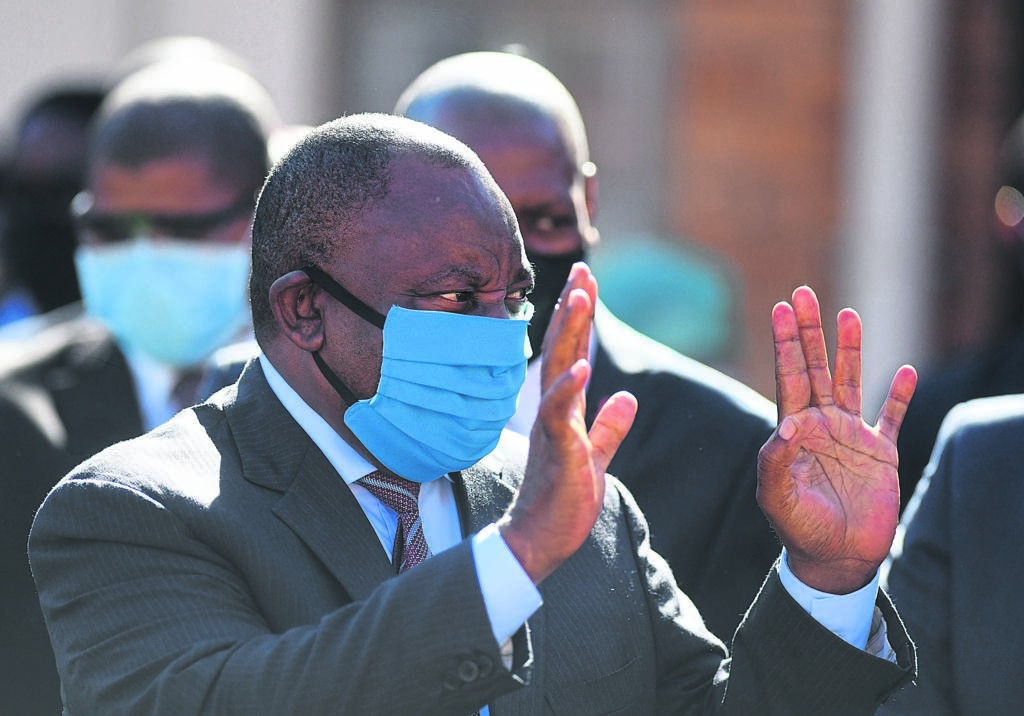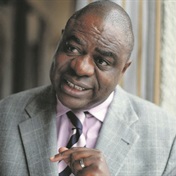
Even as we phase ourselves out of the lockdown, the world we are returning to will be far more dangerous than when we left it. We must continue to self-isolate, maintain physical distancing and avoid crowded areas.
It is no more a matter of whether the lockdown will be lifted or not but when it will be lifted and to which level.
Ever since his announcement that the lockdown would be moved to level three by no later than the end of May the president has held a flurry of meetings, ostensibly to appraise them of the work of the Covid-19 National Command Council; receive reports from Premiers on their work to contain the spread of the pandemic and the state of readiness of health facilities; agree with Nedlac partners on their respective roles in opening the economy and the protection of workers and to brief and receive inputs from political parties.
Business have boldly called on the government to move with speed to level three but preferably to level two in order to have the economy at full throttle.
They join a body of opinion that wants the country to return to "normal" arguing that workers, entrepreneurs and informal traders are bearing the brunt of the lockdown.
While Cosatu and other trade unions at Nedlac are of the same view as organised business, Saftu believes that the call to relax the lockdown is driven by the profit motive of big business with small traders used as a scapegoat.
After all, they argue, some of the businesses currently open have not been able to manage the prevention of the spread of the pandemic especially in major city centres such as Cape Town, Johannesburg, eThekwini, Nelson Mandela Bay, Mangaung and Buffalo City.
Not to be outdone, provinces such as Gauteng, the Western Cape, KwaZulu-Natal and Free State have boldly announced that their provinces will move to level three lockdown by the end of the month with some indicating their readiness to move to level two.
Only the Free State Premier indicated that Mangaung which is the epicentre in the province will remain at level four.
Why the provinces decided to hold press conferences instead of feeding the information to the president and have the Cabinet decide based on evidence is beyond me.
Especially since the president and health minister had been indicating throughout the consultation process, at least in public that they will be using available data per district to decide whether the lockdown levels should be relaxed in that specific area.
It is like they have taken a "to hell with the process" view: we want the economy opened come hell or high water.
It may also be because of the inter-connectedness of the provincial economy. If this is the case, this is something that should be discussed at the PCC (President's Coordinating Council).
While I am critical of their public stunts, I can understand where they are coming from.
How do you allow certain level of economic activity, say, in Krugersdorp, which is part of the West Rand District yet restrict same in adjacent Roodepoort simply because it is part of Johannesburg.
What of the movement of workers who resides in Midrand but eke out a living in Centurion. It is practically impossible.
I suspect it is the same in the other provinces as well.
Once again missing in the call for the opening of the economy to the next level is public transport arrangements.
A substantial number of workers in the Western Cape, Gauteng and parts of KwaZulu-Natal rely on trains.
Even under normal circumstances they are packed and never on time.
It is likely to be worse with physical distancing requirements.
How will entrances to platforms be controlled? I don’t see how commuters will allow a train to leave them behind not knowing when the next train will be.
As part of the easing of the lockdown the government has announced the reopening of schools from 1 June 2020.
There is general agreement that schools have to open to try and salvage what is left of the school year.
To do otherwise would lead to a situation where learners will have to repeat grades and potential Grade R learners kept at home for a year with the consequences being that the school-going age will change forever.
The concerns relate to the safety of learners and teachers, the absence of water and sanitation especially in rural schools as well as PEPs.
Despite assurances by the department that they will be able to supply water tanks and water tankers their record does not inspire confidence amongst teachers, parents and communities.
Added to this is the scholar transport for certain areas.
With the limited number of learners, grades seven and 12, being allowed back to school, many who ferry kids from different grades will not be able to afford resources for petrol or will have to increase the fares adding to more strain on parents.
We knew before the coronavirus that inequalities were high.
The opening of the schools exposes this even more.
While public schools are likely to be limited to grades seven and 12, private schools with no congestion and smaller class sizes are likely to accept all grades back.
This from a country which ostensibly is calling for the opening of the economy to avoid widening social and economic inequalities.
No December is complete amongst aMaxhosa without umgidi.
Anyone who has had the honour and privilege to attend this rite of passage home coming or graduation ceremony, have certainly admired a few things particularly the women’s distinctively creative songs and distinguished dancing, among others.
There's one song that is sung at such occasions that came to mind as I watched and listened to various leaders calling for the lifting of the restrictions beyond the mooted level three being considered by the Cabinet.
Ndikunikil’isandla ndakunika nengalo, ndakunik’amabele. Awuyazi oyifunayo. (I gave you my hand, gave you my arm and gave you my breasts. You don’t know what you want.)
The president revealed that some parts of the country would be moving to Level 3, a phase that comes with eagerly anticipated benefits to some, like the sale and buying of alcohol and tobacco products much to the indulgence of the most vociferous pressure groups.
It seems to too little to late to some. They want more. They want the country to move to level two and secretly hope we scrap the restrictions altogether save for physical distancing, the wearing of masks and hand hygiene.
Questions of how will we suddenly be able to stem the rate of infection when we are not able to with strict measures are brushed aside with "the lockdown was not meant to stop the rate of infection but merely to prepare the health facilities to cope with the expected influx of patients" argument.
Some have even said that in any case, with no vaccine, the old tried and tested "herd immunity" construct is our only saviour.
The unanimous sense of purpose, solidarity and unity that had emerged throughout the country in mid-March when the initial announcements were made, has significantly diminished.
More critical voices have mushroomed, not just aimed at the baffling restrictions and the ministers who made nuisances of themselves, but of the entire idea of the national lockdown.
I am for the phase easing of the lockdown in some areas, while remaining stricter in others.
There is no reason to keep most of Limpopo, Mpumalanga, North West and Northern Cape under level three if we are going to move provinces with high rates of infection and fatalities to that level as well.
We need to continue to balance all interests - social, health and the economy - without sacrificing the ultimate goal of reducing the rate of infection and saving lives.
It is, therefore, incumbent on everyone involved to resist the temptation to flirt with the reckless pursuit of narrow interests.
The government shouldn’t be intimidated into granting mindless concessions as we did to the taxis with no scientific basis. That will not only lead to more unreasonable demands from other sectors, but will expose the rest of the nation to more infections.
We are told the worst is ahead of us. Thus, when we unleash the citizens back into the factories and the offices to support our collapsing economy, we must do so with extreme caution.
According to some scientists, we should expect a million infections.
We need to contain the human cost through maintenance of the sensitive balance between saving lives and rescuing the ailing economy.
We shouldn’t demand more exposure to the outside world just because we can or that being confined to our homes is such an inconvenience.
Even as we phase ourselves out of the lockdown, the world we are returning to will be far more dangerous than when we left it. We must continue to self-isolate, maintain physical distancing and avoid crowded areas.
President Ramaphosa once told a story of how his then business partner Dikgang Moseneke wanted him to play golf at Sun City.
Moseneke told him how easy the game was and that all he needed was a few golf balls, clubs and a kit, and voila, Bob is your uncle.
Ramaphosa having been duly kitted out, pitched up on the first hole for his first ever game of golf.
Even that was an exaggeration as in reality it was his first time to address the ball. He hit fresh air a couple of times.
For rookies, the temptation is to hit it far, but the result is often a miss, a slice or a shank.
He decided to call it a day while Dikgang roared with laughter. But he has become a better player since that first day on the course.
Looking at him traverse the country, holding meetings with premiers, Nedlac, the President’s Coordinating Council, it is like he is on a golf course, but this time a little wiser.
Those who have seen him on a golf course knows that while he is not a scratch golfer, he is no hacker.
He often stays on the fairway and has holed a few awkward putts to take a few rands from Moseneke.
Scientists, business and trade unions, media or political parties are like caddies providing advice.
When you get it right, everyone including your critics will claim they were with you all along.
If you get it wrong, just as no one will admit to having supported apartheid, you won’t find anyone who believed in the relaxation of the lockdown rules.
Any golfer and this includes the president knows that the caddy is just an adviser.
The shot is his. "Left of centre" just like "two balls left or right" are all straight putts. It depends on the speed of the putt.
The putt is still his.
So Mr President, take your time, decide on your line, aim the putter and go for it.
The gallery awaits.




 Publications
Publications
 Partners
Partners






















